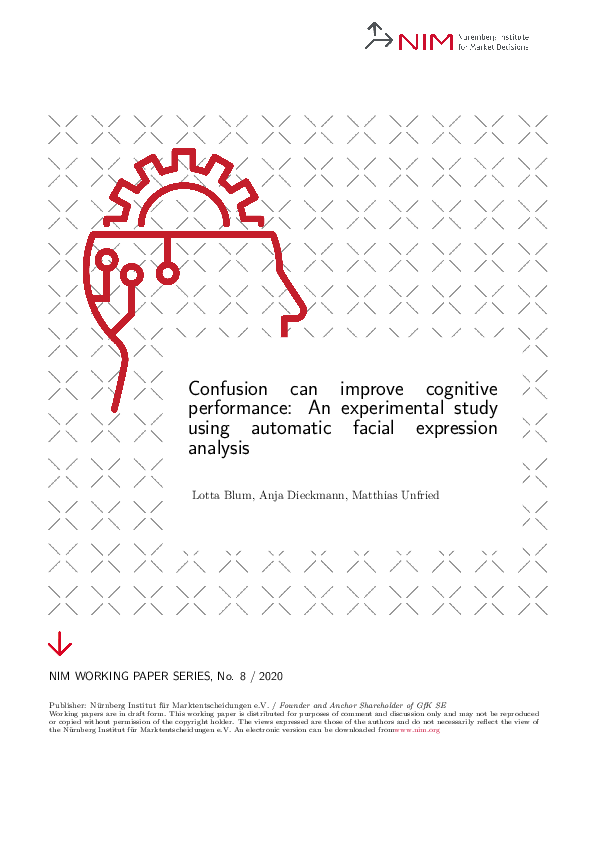Publikationen
 Download
Download
2020
Prof. Dr. Anja Dieckmann,
Dr. Matthias Unfried
Confusion can improve cognitive performance
In educational psychology, previous research has shown a positive association between confusion and cognitive performance, which has been attributed to “deeper learning” processes triggered by the experience of confusion. In the present study we explore the nature of this association by testing whether there is a causal impact of confusion on cognitive performance. We experimentally induced confusion in two different types of tasks – a memory task and an attention task – by incongruent information and discrepancies. Using affective computing software, we measured the facial reaction to the experimental manipulation in form of Action Unit 4 (AU4) as main indicator for confusion. Subsequently, we analyzed the impact of confusion on contextual performance, that is, performance in the same task following the experimental manipulation, as well as on general cognitive performance, that is, performance in the Cognitive Reflection Test (Frederick, 2005). The results indicate that confusion leads to activation of AU4, and that confusion positively impacts performance in the memory task as well as general cognitive performance, but not performance in the attention task. The findings suggest that confusion may lead to deeper and more reflective information processing, which can inform the design of trainings in education settings, or even decision support tools in work settings aimed at disrupting mental routines and thus activating analytic thinking.
Autorinnen und Autoren
- Lotta Blum
- Prof. Dr. Anja Dieckmann, Alumni, anja.dieckmann@hs-aalen.de
- Dr. Matthias Unfried, Head of Behavioral Science, NIM, matthias.unfried@nim.org
Kontakt
